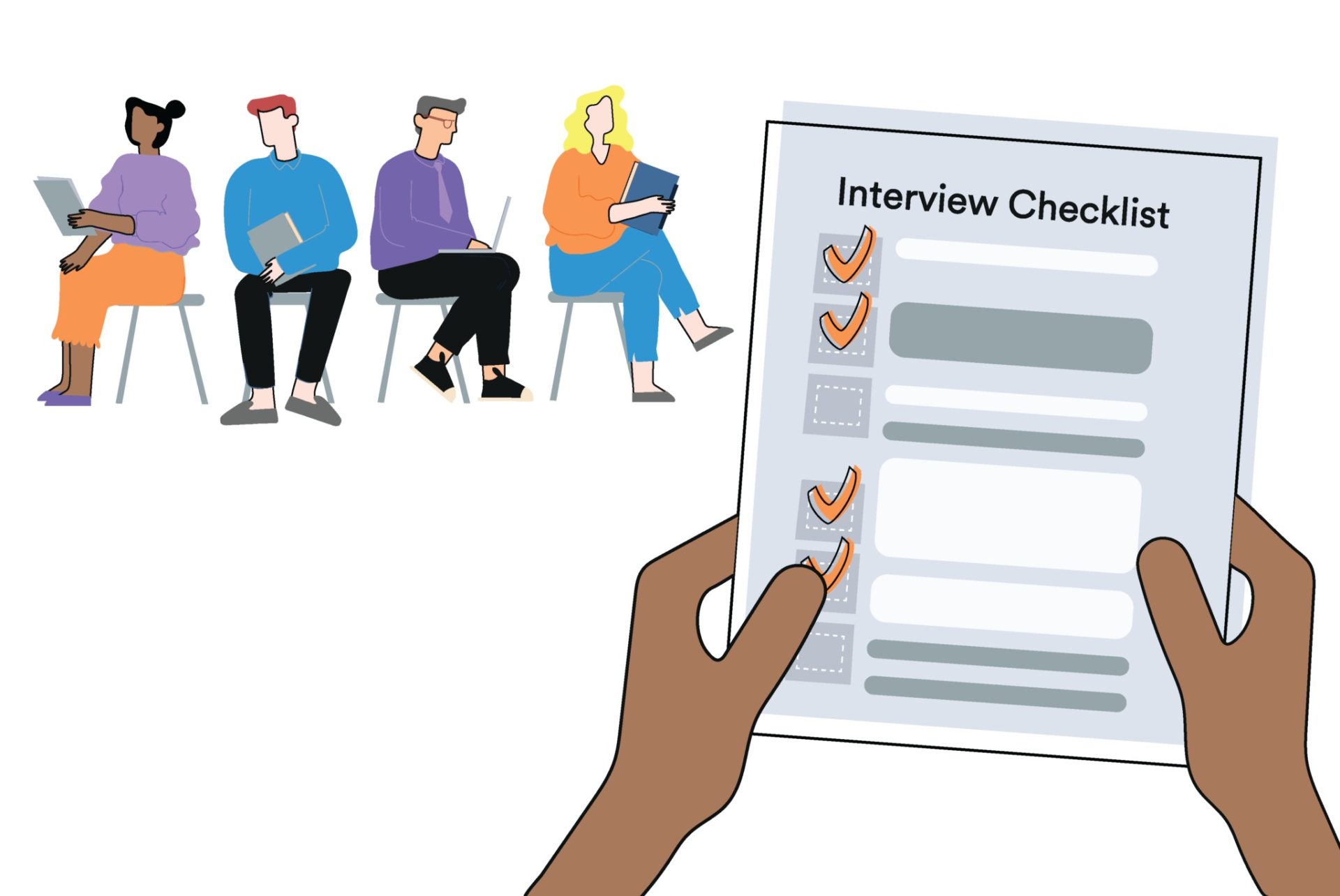Prepare for Interviews

Prepare For Interviews
Once your resume or application has caught the attention of an employer, you may be asked to meet for a formal interview. The key to any successful interview is preparing ahead of time. Use the following interview tips or watch the video below to help you get ready.
BEFORE THE INTERVIEW
RESEARCH THE ORGANIZATION
Employers want to know that you did your homework for the interview. Show your potential boss that your skills and values align with the company’s interests. Learn what they do, who they serve, what makes their business different from their competitors and how long they’ve been in business.
RESEARCH THE JOB
By knowing all the requirements for the position—such as the industry-standard skills, tasks and education—you can show the interviewer how your experience makes you qualified. If an employer requests, “equivalent education or experience,” consider referencing non-professional experiences that fit the qualifications. (For example, if a job posting asks for leadership skills, you might describe your three years as a volunteer coach for a youth soccer team.)
PREPARE FOR COMMON INTERVIEW QUESTIONS
It’s difficult to prepare for every question, but you can build your confidence by practising common questions beforehand. The following resources are a great starting point:
You may also want to ask a friend or a family member to help you with a mock interview. Practise answering potential interview questions in a familiar environment; you will feel more comfortable and confident in the real interview. Plus, repetition will help train your brain for the real event.
PREPARE QUESTIONS FOR THE INTERVIEWER
By preparing a few questions beforehand, you not only show your potential employer you’re interested, but it also helps you figure out if this is the right job for you. You can ask questions about the work environment, the daily tasks or even about the company.
ARRIVE A FEW MINUTES EARLY
Research the location of the interview, check your commute time or the bus route, and leave early to ensure you arrive just before your scheduled interview time.
AT THE INTERVIEW
In many cases, you’ll compete with several candidates for the job. How you present yourself will affect your chances of success.
DRESS TO IMPRESS
Dress one step above the regular dress code—for example, if you’re applying to a work environment with a uniform or a casual dress code, wear business casual. Likewise, if you’re applying to work at an office with a strict business casual policy, wear business clothes (a suit or dress suit combo). Although professional business fashion changes over time, it’s better to slightly overdress and put in the effort, rather than appear underdressed for the interview.
SHOW THE INTERVIEWER YOU’RE ENGAGED AND INTERESTED
You can demonstrate engagement through a variety of methods: making polite small talk you’re your potential employer before the interview, smiling, making eye contact, and taking the time to thoughtfully respond to their questions. Engage with the employer through active listening (to hear and understand the speaker), which will help you avoid miscommunication and other common interview errors. Read Active Listening Skills: Definition and Examples to learn more.
ASK QUESTIONS
When prompted near the end, use the available time to “interview” the employer. Be sure to ask at least one or two relevant questions about the job or company—it shows you’re interested!
BRING YOUR REFERENCES’ CONTACT INFORMATION
Sometimes a potential employer will request your references at the end of an interview, so always come prepared. However, it’s standard courtesy to notify your references before you give their information to your interviewer or potential employer.
AFTER THE INTERVIEW
SEND A THANK-YOU EMAIL
In addition to expressing your appreciation for the interview, a thank-you email brings that personal aspect to the job selection process. Being friendly, polite and professional goes a long way when applying for a job. A thank-you note is typically sent within a day or two of your interview.
REFLECT ON THE PROCESS
Job interviews are difficult, and, like any new skill, it takes time to learn. Even if you weren’t the successful candidate, it was still a valuable opportunity to practise your interview skills and network with the company—and it’s always possible that the employer may remember you and invite you to apply for a new opportunity in the future.
Source: WorkBC
